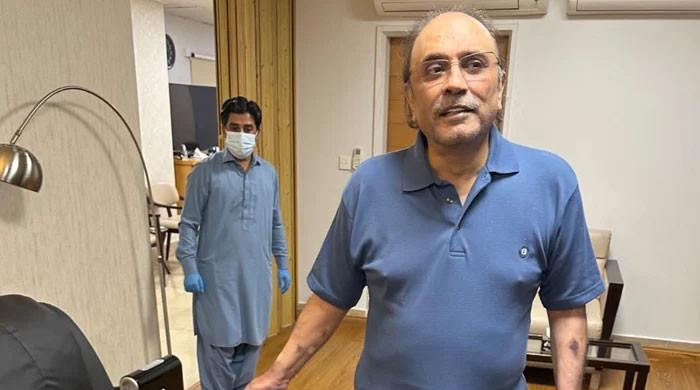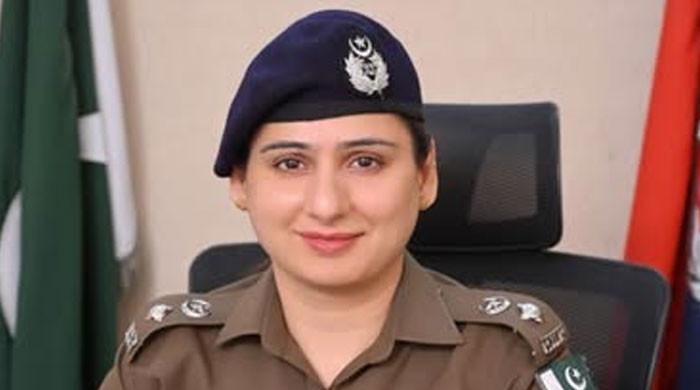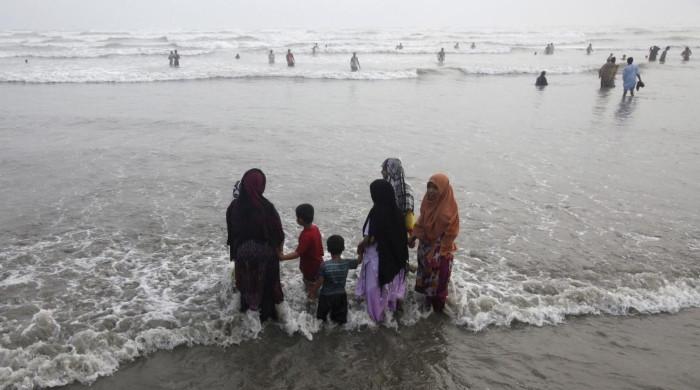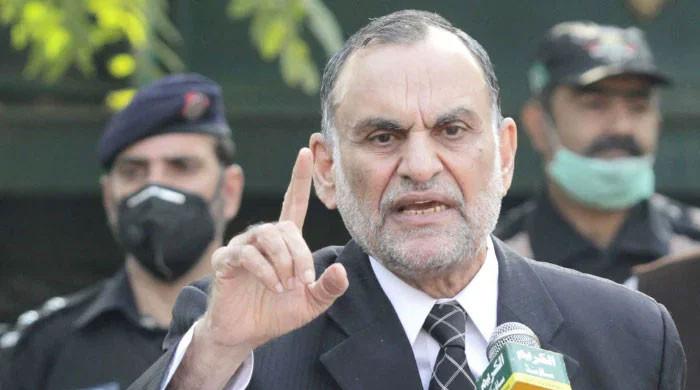In Eid guidelines, NCOC asks elderly to refrain from attending congregational prayers
Eid prayers should be organised in open spaces with COVID-19 protocols, urges NCOC
May 11, 2021
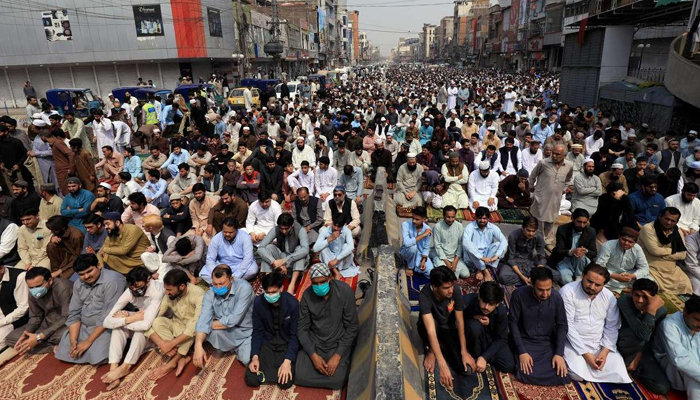
The elderly and teenagers below 15-years should refrain from attending Eid-ul-Fitr prayers, the National Command and Operation Centre (NCOC) said Tuesday.
With the holy festival around the corner, the NCOC has issued guidelines to limit the spread of coronavirus.
A session was held today with Federal Minister for Planning and Development Asad Umar in the chair.
Special Assistant to Prime Minister on Health Dr Faisal Sultan also joined the session via video link.
The meeting was held to take a review of mobility control measures being implemented across the country from May 8-16.
"In the wake of ongoing restrictions imposed till May 16, 2021, [the] forum urged for greater national resolve by adhering to SOPs to reduce the spread of the pandemic," the statement from the NCOC said.
The forum urged the nation to stand united and firm to support these steps undertaken for the well-being of the Pakistani people.
Here are the guidelines issued for Eid prayers:
- Eid prayers should be organised in open spaces with COVID protocols. If there is a compulsion to offer prayers in a mosque, then windows and doors should be kept open for ventilation.
- Eid prayers should take place in 2-3 shifts at one venue with staggered timings to minimise attendance.
- Efforts should be made to keep the sermon (khutba) very brief in order to reduce exposure.
- Discourage sick, elderly, and children under 15-years of age from attending prayers.
- Mandatory wearing of face mask.
- Multiple entry and exit points at prayer venue to avoid rush of individuals.
- Thermal screening at entry points.
- Availability and use of hand sanitisers at entrances and exits.
- 6-feet social distancing markings at the venue.
- Worshippers should bring their own prayer mats.
- Encourage people to perform wudhu/ablution at home
- Discourage socialising and handshakes at the venue after prayers.
- No gathering before and after prayer.
- Banners/panaflexes highlighting COVID-19 protocols should be displayed at prominent places at the venue as part of the awareness campaign.
- Well laid out parking areas should be prepared for crowd management.
Stay home, stay safe
Last month, the NCOC had announced comprehensive "stay home, stay safe" guidelines from May 8-16 to curb the spread of the virus.
The NCOC had ordered closing chaand raat bazaars, shopping malls, public places, and recreational spots in this period. The ban on chaand raat bazaars extends to mehndi, jewelry/ornaments and clothing stalls, the NCOC said.
"The current spike of COVID-19 in the country merits effective measures to arrest its further spread with special emphasis on reducing mobility during forthcoming Eid-Ul-Fitr," the NCOC said in a statement.
All markets, businesses, and shops will remain closed except essential services, which include:
- Grocery stores
- Pharmacies/medical stores
- Medical facilities and vaccination centres
- Vegetables, fruit, chicken, and meat shops
- Bakeries
- Petrol pumps
- Food takeaways and E-Commerce (Home Delivery)
- Utility Services (electricity, natural gas, internet, cellular networks/telecom, call centres) and media.
A complete ban on tourism would be observed for both locals and foreigners.
All tourist resorts, formal and informal picnic spots, public parks, shopping malls will remain shut. All hotels and restaurants around tourist and picnic spots will remain closed.
"Travel nodes leading to tourist/picnic spots closed; focus on Murree, Galiyat, Swat-Kalam, Sea View/beaches, and Northern Areas and other tourist destinations," the statement said.
Locals, especially people of Gilgit-Baltistan and Azad Jammu and Kashmir, would be allowed to travel back home, the statement said.
A complete ban on inter-provincial, inter-city, and intra-city public transport will be observed except for private vehicles, taxis, rickshaws, with 50% occupancy.
"Additional trains to manage extra passenger load till 7 May, thereafter normal train operation [will] be resumed. 70% occupancy along with stringent COVID SOPs [should] be ensured," NCOC said.




